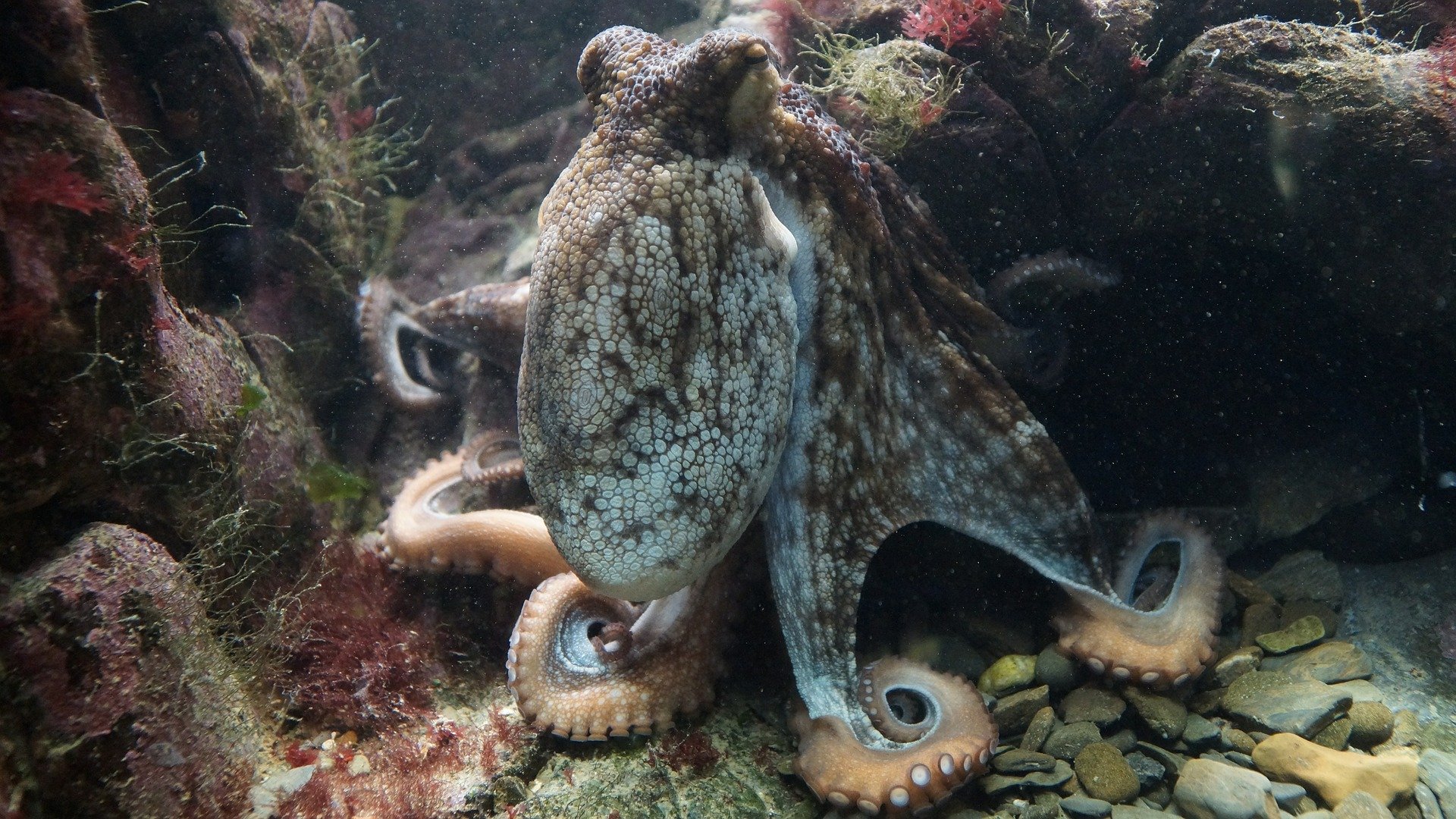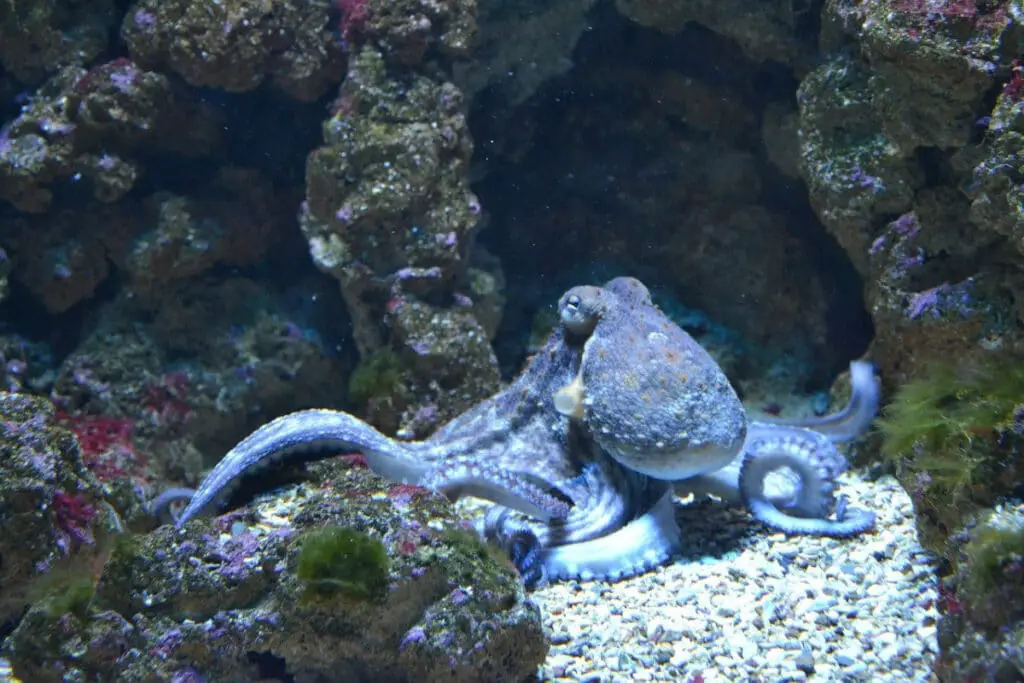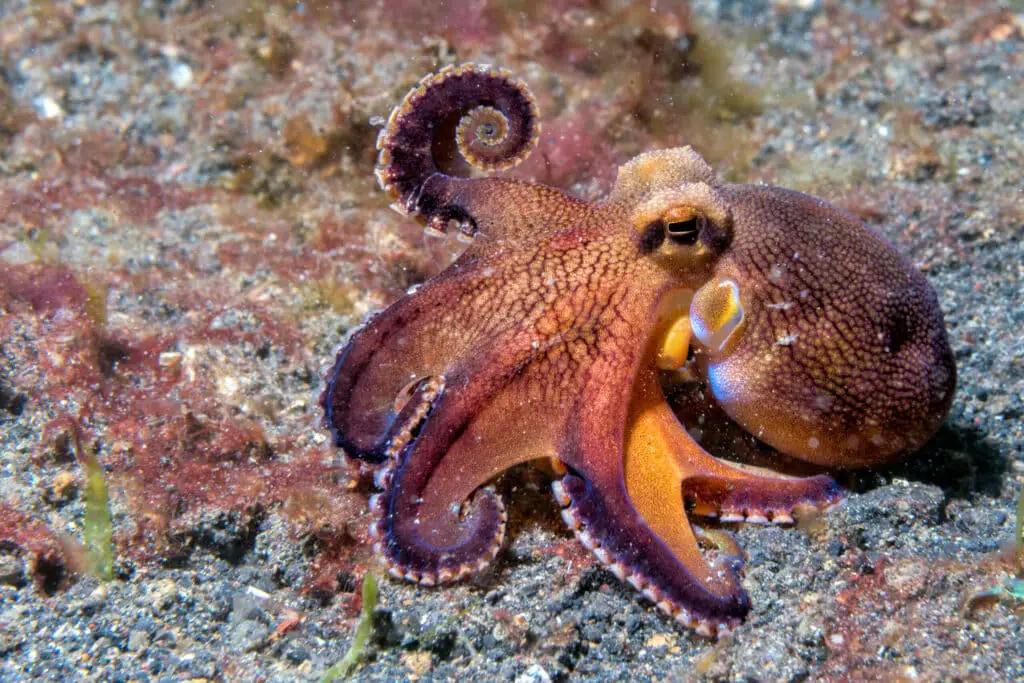Do Octopus Grow Back Tentacles

Introduction
Do Octopus Grow Back Tentacles: Octopuses, the enigmatic denizens of the deep, have long fascinated scientists and sea enthusiasts alike with their incredible adaptability and astonishing abilities. Among their many remarkable traits, one stands out as particularly captivating: the capacity to regenerate lost tentacles.
This phenomenon raises intriguing questions about the limits of nature’s restorative powers and the mechanisms underlying this extraordinary ability. How do octopuses regrow intricate, multifunctional appendages.
In this exploration, we embark on a journey into the world of octopus biology, uncovering the secrets of tentacle regeneration. We delve into the fascinating mechanisms that enable these intelligent cephalopods to recover from injuries, whether inflicted by predators or accidents, and return to their full, agile selves.
As we navigate this underwater mystery, we will also discover the evolutionary significance of this unique trait. Join us as we dive into the depths of the ocean and the depths of scientific inquiry to unravel the enigma of octopus tentacle regeneration, shedding light on one of nature’s most captivating feats.

How long does it take for an octopus tentacle to grow back?
This species can regenerate their arms in a quick 6-8 weeks.
The regeneration of an octopus tentacle is a remarkable process, but the exact duration for a tentacle to fully regrow can vary depending on several factors. Generally, it’s a gradual and time-consuming process that unfolds over weeks to months.
First, when an octopus loses a tentacle due to injury or predation, it immediately initiates a series of biological responses. The regeneration process begins with the activation of specialized cells called pluripotent stem cells, which have the incredible ability to transform into various cell types.
These stem cells undergo rapid division, forming a mass of undifferentiated cells known as a “blastema.” From the blastema, the regeneration process unfolds as these cells differentiate into the specific tissues and structures needed for the new tentacle. This intricate transformation involves the development of muscle, skin, suckers, and nerve connections.
While the exact timeframe can vary among different octopus species and individuals, it typically takes several weeks to several months for a tentacle to grow back to its full size and functionality. Factors such as the octopus’s age, health, and environmental conditions can influence the speed of regeneration.
This remarkable regenerative ability not only aids in the octopus’s survival but also provides a fascinating subject for scientific study, shedding light on the intricacies of tissue regeneration in the animal kingdom.
Do octopus feel pain when cut?
A science-based report from the University of British Columbia to the Canadian Federal Government has been quoted as stating “The cephalopods, including octopus and squid, have a remarkably well developed nervous system and may well be capable of experiencing pain and suffering.”
The question of whether octopuses feel pain when cut is a subject of ongoing scientific inquiry and ethical concern. Octopuses possess a complex nervous system, with approximately 500 million neurons distributed throughout their bodies, a remarkable feat of evolution comparable to some vertebrates. These neurons are not only concentrated in their brains but also extend into their arms, allowing for a decentralized intelligence.
While studies have shown that octopuses exhibit behaviors indicative of pain, such as protective responses to noxious stimuli, it’s important to note that their perception of pain may differ fundamentally from that of mammals. Unlike vertebrates, octopuses lack a centralized brain structure known as the “cerebral cortex,” which is often associated with higher-order processing of pain in mammals. Instead, their intelligence is distributed across their neural network, making it challenging to equate their experiences with ours.
Despite these complexities, the question of octopus sentience and their capacity to experience pain underscores broader discussions about animal welfare and the ethical treatment of cephalopods. As our understanding of these enigmatic creatures deepens, so too does the need for responsible and empathetic practices in scientific research and industry to ensure their well-being.
Why do octopus lose tentacles?
Why might an octopus lose an arm, to begin with? If a predator, such as a shark, grabs an octopus’s arm, the octopus can shed its limb and swim away (mostly) intact. Octopuses share this ability to drop limbs, called autotomy, with some sea stars, lizards, and amphibians, among other animals.
Octopuses possess a remarkable ability to regenerate lost or damaged body parts, including their tentacles. This phenomenon serves as a crucial adaptation for survival in their dynamic marine environments. The primary reason octopuses might lose a tentacle is to evade predators. When threatened, they can engage in autotomy, a deliberate self-amputation of a tentacle, which remains writhing to distract the predator while the octopus makes a swift escape.
Additionally, octopuses might lose tentacles due to accidental damage caused by rough terrain or encounters with sharp objects. Their flexible bodies make them well-suited to navigate through tight spaces, but this also means that their tentacles are vulnerable to getting caught or entangled.
Regeneration is a vital aspect of an octopus’s biology. The process involves specialized cells at the site of injury that rapidly divide and differentiate to form a new tentacle. While this regeneration is a remarkable feature, it does come with costs, as regrowing a tentacle requires a significant amount of energy and resources.
Understanding the octopus’s ability to regenerate tentacles not only sheds light on their impressive adaptability but also offers valuable insights for fields such as regenerative medicine and tissue engineering, where scientists look to nature for inspiration in developing similar capabilities in humans.
Why do octopus have 3 hearts?
An octopus’s three hearts have slightly different roles. One heart circulates blood around the body, while the other two pump it past the gills, to pick up oxygen.
Octopuses, those enigmatic and highly intelligent inhabitants of the ocean, possess a fascinating circulatory system that sets them apart from many other creatures on Earth. One of the most intriguing features of their circulatory system is the presence of not one, but three hearts.
These three hearts serve a vital purpose in the octopus’s complex physiology. Two of the hearts, known as branchial hearts, are responsible for pumping oxygen-depleted blood from the octopus’s body to its gills, where oxygen is absorbed from the surrounding water.
The third heart, known as the systemic heart, pumps oxygenated blood to the rest of the octopus’s body, delivering the essential oxygen and nutrients required for its organs and tissues to function optimally. This systemic heart plays a role akin to the heart in most vertebrates, serving as the central pump for the entire circulatory system.
The presence of three hearts in octopuses reflects their extraordinary adaptation to life in the ocean’s depths, where oxygen availability can vary significantly. This unique circulatory system exemplifies nature’s ability to devise innovative solutions for survival, allowing these remarkable creatures to thrive in their ever-changing aquatic environments.
Do octopus feel pain in their tentacles?
Octopuses Not Only Feel Pain Physically, But Emotionally Too, First Study Finds. An important new study suggests octopuses are likely to feel and respond to pain in a similar way to mammals – the first strong evidence for this capacity in any invertebrate.
The question of whether octopuses feel pain in their tentacles is a topic that continues to intrigue scientists and provoke ethical discussions. Octopuses, like other cephalopods, have complex nervous systems and exhibit behaviors that suggest they can sense and respond to various stimuli, including physical injuries to their tentacles.
When an octopus’s tentacle is injured or severed, it often exhibits strong reactions, such as withdrawing the affected limb, changing color, or displaying behaviors that might indicate discomfort. These responses have led some researchers to speculate that octopuses can experience pain.
However, the nature of pain perception in octopuses remains a subject of scientific debate. Unlike vertebrates, octopuses lack a centralized brain, and their nervous system is distributed throughout their body, including their tentacles. This decentralized nervous system makes it challenging to determine if their responses to injury equate to pain as experienced by humans or other animals with centralized nervous systems.
Some scientists argue that octopuses may exhibit nociceptive responses, indicating a basic sensitivity to harm or irritation, without necessarily experiencing conscious pain as we understand it. Further research is needed to unravel the complexities of octopus sensory perception and to determine if they truly feel pain in their tentacles or if their reactions are solely reflexive.
Can octopus survive without a tentacle?
If an octopus’ arm is cut off without the poor guy being euthanized, it’s no sweat for the cephalopod. While cut-off limbs do not regrow a new octopus, à la starfish, the octopus can regenerate tentacles with a far superior quality than, say, a lizard’s replacement tail, Harmon writes.
Octopuses are remarkable creatures known for their exceptional adaptability, and they can indeed survive without one or more of their tentacles. The ability to regenerate lost tentacles is a critical part of their survival strategy.
When an octopus loses a tentacle due to predation, injury, or other causes, it initiates a fascinating process of self-healing and regeneration. Specialized cells called pluripotent stem cells play a crucial role in this regenerative process. These cells have the remarkable capability to differentiate into various cell types, allowing for the growth of new tissues and structures.
Over time, the octopus will regenerate the lost tentacle, gradually restoring its full functionality. The process can take several weeks to several months, depending on factors such as the octopus’s age, health, and environmental conditions.
During the period of regeneration, the octopus may adapt its behavior and strategies for hunting, feeding, and defense. Other tentacles will often compensate for the loss, becoming more versatile and effective in performing various tasks.
This remarkable ability to regenerate lost tentacles highlights the octopus’s resilience and adaptability in the ever-changing underwater world. It is a testament to the wonders of nature and the incredible strategies that different species employ to thrive in their environments.
Are there any special considerations for caring for an octopus with regrown tentacles?
Caring for an octopus with regrown tentacles does require some special considerations to ensure the well-being of these fascinating creatures. Octopuses are known for their intelligence, sensitivity, and unique needs, and these considerations become even more important when they are regenerating lost tentacles:
- Monitoring Health: Regularly assess the overall health of the octopus, including its regrown tentacles. Look for any signs of infection, injury, or abnormalities in the new tissue. Promptly address any issues that arise to prevent potential complications.
- Tank Environment: Ensure that the tank environment is suitable for an octopus. Maintain appropriate water quality, temperature, and salinity levels. Octopuses are highly sensitive to changes in water conditions, which can impact their health and stress levels.
- Diet and Nutrition: Provide a balanced and nutritious diet. Octopuses need a variety of seafood to meet their nutritional requirements. Adjust the diet as needed to support the energy demands of regenerating tentacles.
- Behavioral Enrichment: Stimulate the octopus’s mind with environmental enrichment. Arrange the tank with hiding places, toys, and objects to interact with. Mental stimulation is essential for their well-being.
- Avoid Stress: Octopuses are sensitive to stress, so minimize disturbances in their environment. Limit handling and sudden changes in lighting or noise that may cause undue stress.
- Regular Observation: Observe the octopus’s behavior closely. If it shows signs of discomfort or aggression towards its own regenerating tentacles, consider separating it temporarily to prevent self-injury.
- Consult Experts: Seek guidance from experts in octopus care and marine biology to ensure that you are providing the best possible care for your octopus, especially during the regrowth process.
Caring for an octopus, particularly during the regeneration of tentacles, demands careful attention to detail and a deep understanding of these intelligent and sensitive creatures. Providing a nurturing environment can help support their recovery and overall well-being.
How long does it take for a tentacle to regrow?
The time it takes for an octopus’s tentacle to regrow can vary depending on several factors, including the species of octopus, the individual’s age, health, and the extent of the injury. Generally, the process of regenerating a tentacle is gradual and can span from several weeks to several months.
When an octopus loses a tentacle due to predation, injury, or self-amputation, it initiates a complex biological response to regenerate the missing appendage. The key players in this process are pluripotent stem cells, which possess the remarkable ability to differentiate into various cell types. These stem cells are crucial for rebuilding the lost tentacle.
Over time, these stem cells undergo division and differentiation, forming the tissues and structures necessary for the new tentacle. The regenerated tentacle starts as a small, fleshy protrusion and gradually grows in size and complexity. The timeline for complete regeneration depends on various factors, including the octopus’s overall health and environmental conditions.
In some cases, it might take several weeks for a tentacle to partially regrow, allowing the octopus to regain some functionality. However, to reach full maturity and functionality, it can take several months.
This remarkable regenerative ability is a testament to the octopus’s resilience and adaptability, allowing them to recover from injuries and return to their full, agile selves over time.

Conclusion
The ability of octopuses to regrow their tentacles is a testament to the marvels of nature and the incredible adaptability of these oceanic creatures. Through our exploration, we’ve uncovered some fascinating insights into the mechanisms behind this phenomenon.
Octopuses achieve tentacle regeneration through a combination of specialized cells and intricate biological processes, which not only allow them to recover from injuries but also potentially provide an evolutionary advantage in their ever-changing underwater environments. This adaptability is crucial for their survival, as they face numerous challenges and threats in the ocean’s depths.
Moreover, the study of octopus tentacle regeneration offers valuable lessons for the field of regenerative medicine. Understanding the molecular and cellular processes at play in these cephalopods could inspire new approaches to healing and tissue regeneration in humans, potentially revolutionizing the way we treat injuries and diseases.
On our journey into this captivating aspect of octopus biology, we are left with a profound appreciation for the mysteries of the natural world. Octopuses remind us that even in the most unexpected corners of our planet, astonishing discoveries await those who dare to explore and question.



